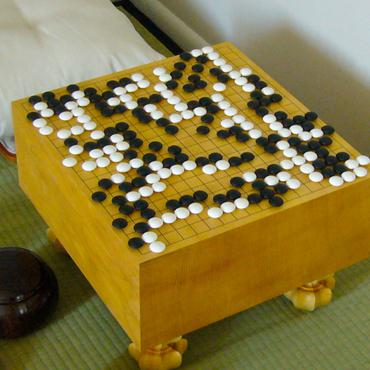Search Results for author: Mei-Hui Wang
Found 10 papers, 1 papers with code
Robotic Assistant Agent for Student and Machine Co-Learning on AI-FML Practice with AIoT Application
no code implementations • 11 May 2021 • Chang-Shing Lee, Mei-Hui Wang, Zong-Han Ciou, Rin-Pin Chang, Chun-Hao Tsai, Shen-Chien Chen, Tzong-Xiang Huang, Eri Sato-Shimokawara, Toru Yamaguchi
Besides, the Robotic Assistant Agent (RAA) can assist students and machines in co-learning English and AI-FML practice based on the robot Kebbi Air and AIoT-FML learning tool.
A Study on AI-FML Robotic Agent for Student Learning Behavior Ontology Construction
no code implementations • 18 Jun 2020 • Chang-Shing Lee, Mei-Hui Wang, Wen-Kai Kuan, Zong-Han Ciou, Yi-Lin Tsai, Wei-Shan Chang, Lian-Chao Li, Naoyuki Kubota, Tzong-Xiang Huang, Eri Sato-Shimokawara, Toru Yamaguchi
In this paper, we propose an AI-FML robotic agent for student learning behavior ontology construction which can be applied in English speaking and listening domain.
A GFML-based Robot Agent for Human and Machine Cooperative Learning on Game of Go
no code implementations • 22 Jan 2019 • Chang-Shing Lee, Mei-Hui Wang, Li-Chuang Chen, Yusuke Nojima, Tzong-Xiang Huang, Jinseok Woo, Naoyuki Kubota, Eri Sato-Shimokawara, Toru Yamaguchi
This paper applies a genetic algorithm and fuzzy markup language to construct a human and smart machine cooperative learning system on game of Go.
PFML-based Semantic BCI Agent for Game of Go Learning and Prediction
no code implementations • 10 Jan 2019 • Chang-Shing Lee, Mei-Hui Wang, Li-Wei Ko, Bo-Yu Tsai, Yi-Lin Tsai, Sheng-Chi Yang, Lu-An Lin, Yi-Hsiu Lee, Hirofumi Ohashi, Naoyuki Kubota, Nan Shuo
This paper presents a semantic brain computer interface (BCI) agent with particle swarm optimization (PSO) based on a Fuzzy Markup Language (FML) for Go learning and prediction applications.
PSO-based Fuzzy Markup Language for Student Learning Performance Evaluation and Educational Application
no code implementations • 24 Feb 2018 • Chang-Shing Lee, Mei-Hui Wang, Chi-Shiang Wang, Olivier Teytaud, Jialin Liu, Su-Wei Lin, Pi-Hsia Hung
This paper proposes an agent with particle swarm optimization (PSO) based on a Fuzzy Markup Language (FML) for students learning performance evaluation and educational applications, and the proposed agent is according to the response data from a conventional test and an item response theory.
Human and Smart Machine Co-Learning with Brain Computer Interface
no code implementations • 19 Feb 2018 • Chang-Shing Lee, Mei-Hui Wang, Li-Wei Ko, Naoyuki Kubota, Lu-An Lin, Shinya Kitaoka, Yu-Te Wang, Shun-Feng Su
Machine learning has become a very popular approach for cybernetics systems, and it has always been considered important research in the Computational Intelligence area.
Ontology-based Fuzzy Markup Language Agent for Student and Robot Co-Learning
no code implementations • 26 Jan 2018 • Chang-Shing Lee, Mei-Hui Wang, Tzong-Xiang Huang, Li-Chung Chen, Yung-Ching Huang, Sheng-Chi Yang, Chien-Hsun Tseng, Pi-Hsia Hung, Naoyuki Kubota
Meanwhile, the robot acts as a teacher's assistant to co-learn with children in the class.
FML-based Dynamic Assessment Agent for Human-Machine Cooperative System on Game of Go
1 code implementation • 16 Jul 2017 • Chang-Shing Lee, Mei-Hui Wang, Sheng-Chi Yang, Pi-Hsia Hung, Su-Wei Lin, Nan Shuo, Naoyuki Kubota, Chun-Hsun Chou, Ping-Chiang Chou, Chia-Hsiu Kao
In this paper, we demonstrate the application of Fuzzy Markup Language (FML) to construct an FML-based Dynamic Assessment Agent (FDAA), and we present an FML-based Human-Machine Cooperative System (FHMCS) for the game of Go.
FML-based Prediction Agent and Its Application to Game of Go
no code implementations • 16 Apr 2017 • Chang-Shing Lee, Mei-Hui Wang, Chia-Hsiu Kao, Sheng-Chi Yang, Yusuke Nojima, Ryosuke Saga, Nan Shuo, Naoyuki Kubota
In this paper, we present a robotic prediction agent including a darkforest Go engine, a fuzzy markup language (FML) assessment engine, an FML-based decision support engine, and a robot engine for game of Go application.
Human vs. Computer Go: Review and Prospect
no code implementations • 7 Jun 2016 • Chang-Shing Lee, Mei-Hui Wang, Shi-Jim Yen, Ting-Han Wei, I-Chen Wu, Ping-Chiang Chou, Chun-Hsun Chou, Ming-Wan Wang, Tai-Hsiung Yang
The Google DeepMind challenge match in March 2016 was a historic achievement for computer Go development.

